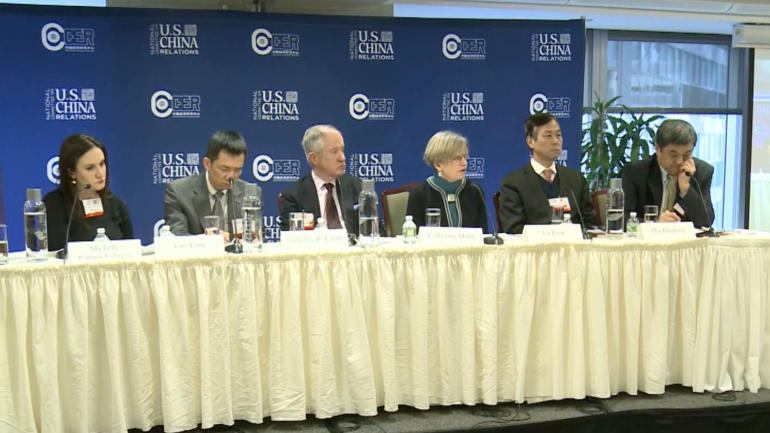The National Committee on U.S.-China Relations hosted an event in New York to discuss the outlook for the Chinese economy in 2019.
But most of the talk centered on China’s slowdown in 2018 and relations with the United States. Karina Huber reports.
2018 was a tough year for China’s economy. Growth slowed and its stock markets fell sharply. But what caused the decline was up for debate at an event hosted by the National Committee on U.S.-China Relations in New York.
Justin Lin, former Chief Economist at the World Bank, said it was mainly caused by supply-side structural reforms.
“All of those kinds of reforms are contractionary – are contractionary. Chinese government should be commended for the willingness to take up those kind of contractionary structural reform,” said Lin, a professor at the National School of Development at Peking University.
He and others said the trade war also had an impact, but it was mainly psychological — hurting the stock market and causing some to cut back on spending.
Those in attendance were largely optimistic an agreement could be reached eventually, mainly because of domestic economic pressure on both sides.
“The Chinese economy is slowing for a number of structural reasons, which an agreement could address. I think in the U.S. we’ll see increasingly the evidence that tariffs are actually disadvantaging the U.S. economy, reducing employment, slowing growth,” said Nicholas Lardy, a senior fellow at Peterson Institute for International Economics.
Catherine Mann the chief global economist at Citi, also spoke of the impacts of tensions.
“We had a lot of volatility in financial markets most recently, which many people argue is a consequence of the Twitter trade war,” Mann said.
Mann added that the stock market volatility might push the Trump administration to make a deal.
Chinese professor Zha Daojiong was more worried about the long-term impact of the trade war.
“The most damaging part of the negotiations between the two countries at this point of time… is this Cold War idea, this new Cold War idea, this demand for third country markets to choose between China and the United States,” said Zha said.
 CGTN America
CGTN America

